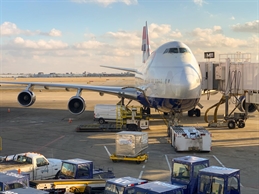
The International Air Transport Association (IATA) urged the air cargo industry to continue working together at the same pace, with the same levels of cooperation as during the COVID-19 pandemic to overcome future challenges and build industry resilience.
IATA said sustainability, modernization, and safety were highlighted as key priorities for the industry post pandemic, in a statement made during the 14th World Cargo Symposium (WCS) in Dublin.
“Air cargo is a critically important industry. This pandemic reminded us of that. During the crisis, it has been a lifeline for society, delivering critical medical supplies and vaccines across the globe and keeping international supply chains open. And for many airlines, cargo became a vital source of revenue when passenger flights were grounded,” said Brendan Sullivan, IATA’s Global Head of Cargo.
In 2020, Sullivan noted that the air cargo industry generated US$129 billion, which represented approximately a third of airlines’ overall revenues, an increase of 10–15% compared to pre-crisis levels.
“Looking towards the future, the outlook is strong. We need to maintain the momentum established during the crisis and continue building resilience post pandemic,” he added.
Outlook for air cargo
IATA in a statement said that the outlook for air cargo in the short and long-term is "strong," noting that indicators such as inventory levels and manufacturing output are favorable.
It added that world trade is forecast to grow at 9.5% this year and 5.6% in 2022, e-commerce continues to grow at a double-digit rate, and demand for high-value specialized cargo – such as temperature-sensitive healthcare goods and vaccines - is rising.
It said this year cargo demand is expected to exceed pre-crisis (2019) levels by 8% and revenues are expected to rise to a record US$175 billion, with yields expected to grow by 15%.
In 2022 demand is expected to exceed pre-crisis (2019) levels by 13% with revenues expected to rise to US$169 billion although there will be an 8% decline in yields.
“The surge in demand for air cargo and attractive yields are not without complications. Pandemic restrictions have led to severe global supply-chain congestion and created hardships for aircrew crossing international borders. Resourcing and capacity, handling and facility space and logistics will be an issue. This will create further operational challenges for our industry that must be planned for now. But we have demonstrated resilience throughout the crisis and with that same focus we will overcome these challenges,” Sullivan added.



